Unf**king the Climate - Part 4: Electric Cars, Good or Bad?
Electric cars are often talked about in a really weird false dichotomy whether they're either a silver bullet or worse than petrol cars, but what is anyone even talking about? Let's dive in.

Depending on who you talk to, or what news you read, electric cars are either a silver-bullet that's going to fix the whole climate crisis, or they're "worse than petrol cars". Any attempts to have a more nuanced discussion get lost in a shouting match, especially if you try and discuss it on something like Twitter.
It's almost impossible to say anything useful about EVs in 280 characters, but let's have a go.
EVs are in some ways substantially less damaging than fossil fuel vehicles over their lifetime, but are not better enough that we can all keep buying cars and driving everywhere. We need fewer cars not different cars, but if you NEED a car, it should absolutely be electric.
If you agree with that, then cool, probably don't need to read much below. If you're thinking "but... but..." then ok, but it'll take 35,000 characters to cover all the "buts". This is your fault, not mine.
Why are people obsessed with Electric Vehicles?
Transportation (cars, trucks, planes, trains) account for nearly one-quarter of all greenhouse gas emissions in the USA, and 1/5th of emissions in the UK. This means a huge focus is placed on road vehicles, and electric vehicles end up being the majority of the discussion about reducing transport emissions.

Instead of discussing more buses, electrifying bus fleets, upgrading and expanding railway lines, electrifying rail, and all sorts of other options, we are stuck with a shouting match about which type of cars we should all be driving, instead of talking about if we should all be driving so much.
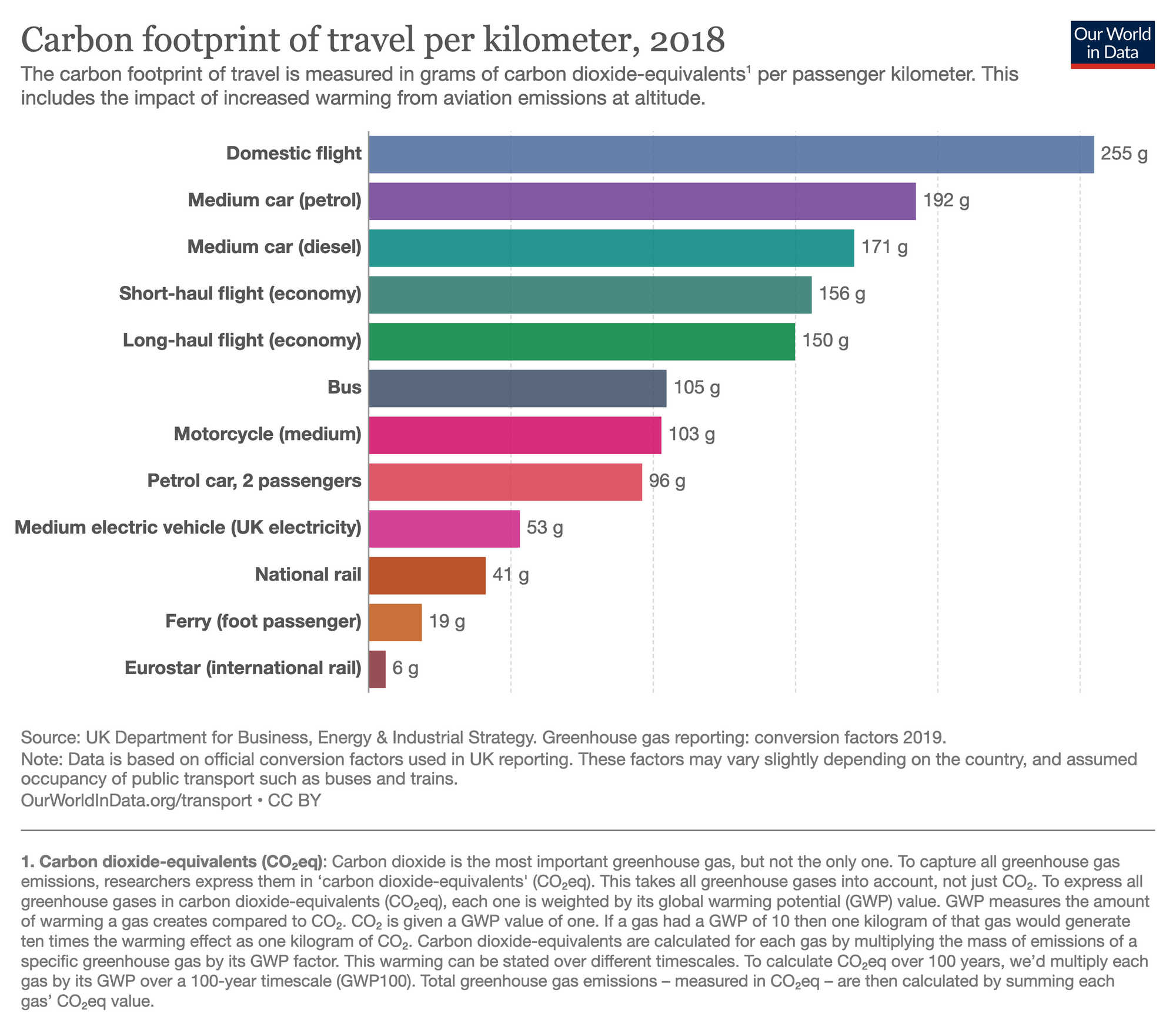
Seeing as electric cars reduce the tailpipe emissions over fossil fuel cars, plenty of people end up over-emphasizing their importance, but whilst that oversimplification is happening there are others over-emphasizing the downsides, and we end up with yet another round of the constant cherry-picking which is "here is one pro that means its amazing" and "here is one con which means it's awful" that have come to dominate most climate discussions.
Let us set the scene a bit with this cartoon.
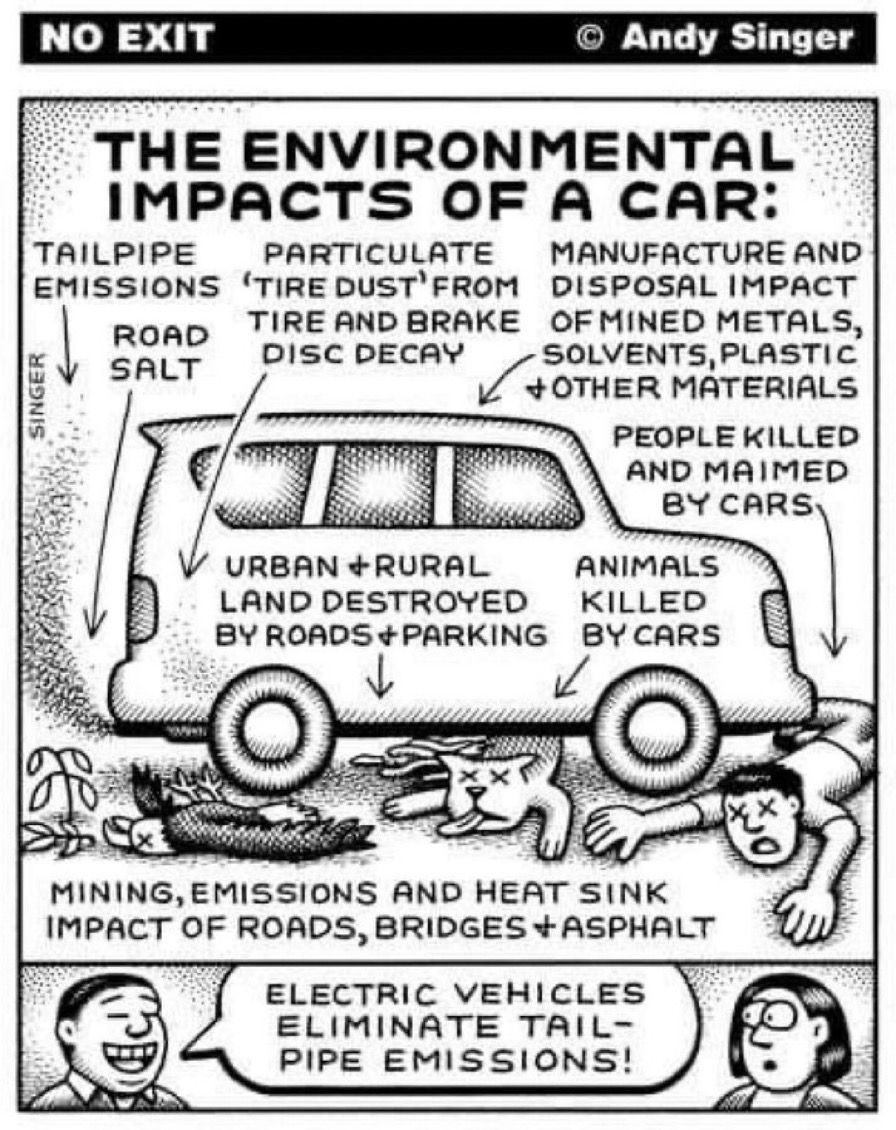
Electric vehicles solve some of the problems of fossil fuel cars, but not all of them, so are they good or bad? That's a big one, but first we can establish something simple: are EVs better or worse for the environment than fossil fuel cars?
Lifecycle Carbon Analysis
One of the most important topics you need to learn on the path to climate literacy is "lifecycle carbon analysis", which is the total account of all carbon dioxide and other greenhouse gas emissions, produced throughout the mining, manufacturing, transportation, ongoing use, and eventual scrapping or recycling of the thing.
All the greenhouse gases produced are then all normalized as a single metric: Carbon Dioxide equivalent (CO2e), helping make a basis of comparison that is not just swapping one problem for another. For example methane is a more potent greenhouse gas over a shorter timeframe, so we don't want to reduce carbon dioxide by doing something which increases methane to a point where the overall CO2e is now higher. That would just mean more climate crisis faster.
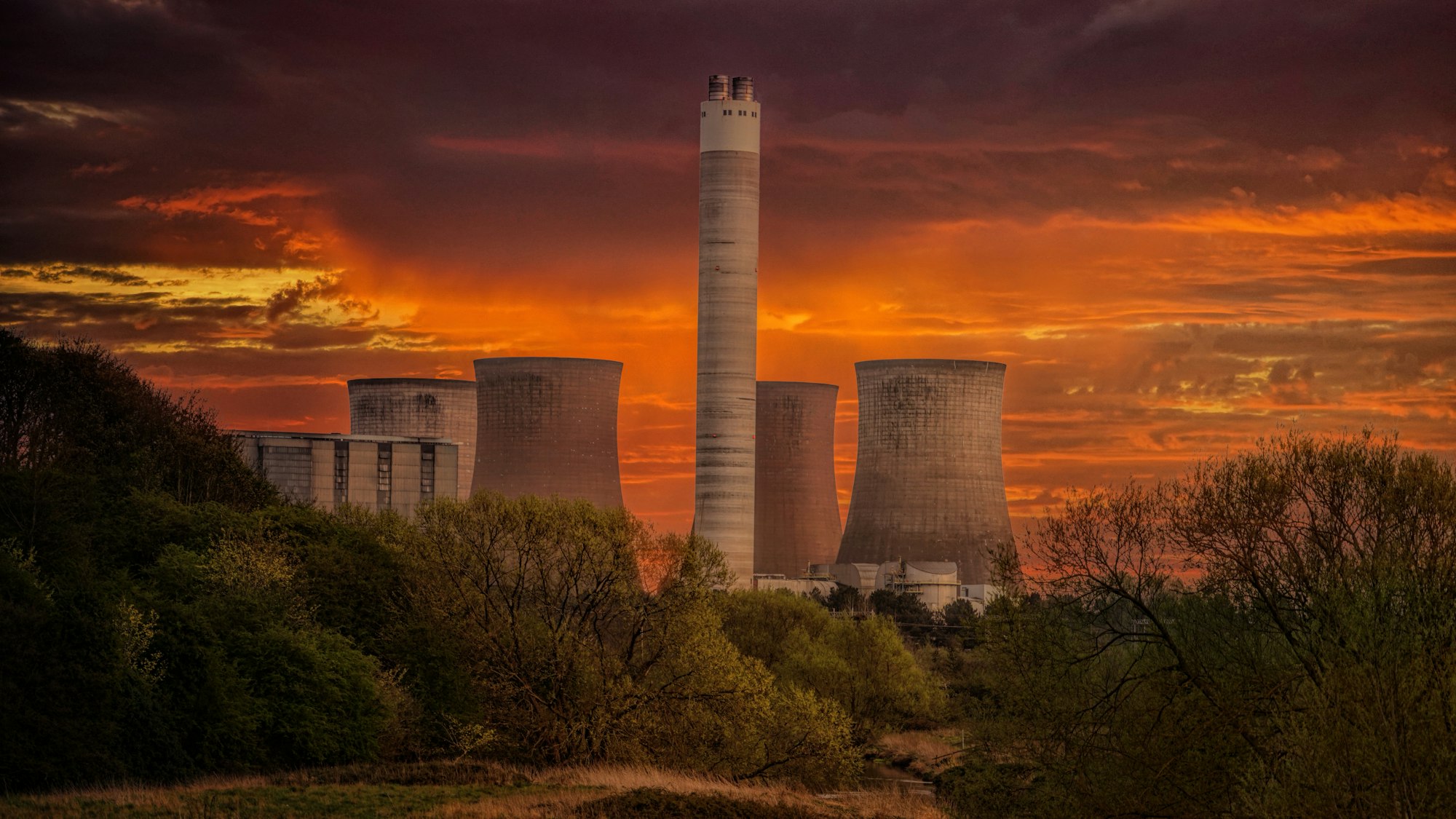
In this chart from Carbon Brief you can see that the lifecycle emissions are much lower than a "conventional vehicle" (petrol or diesel), all over the world.
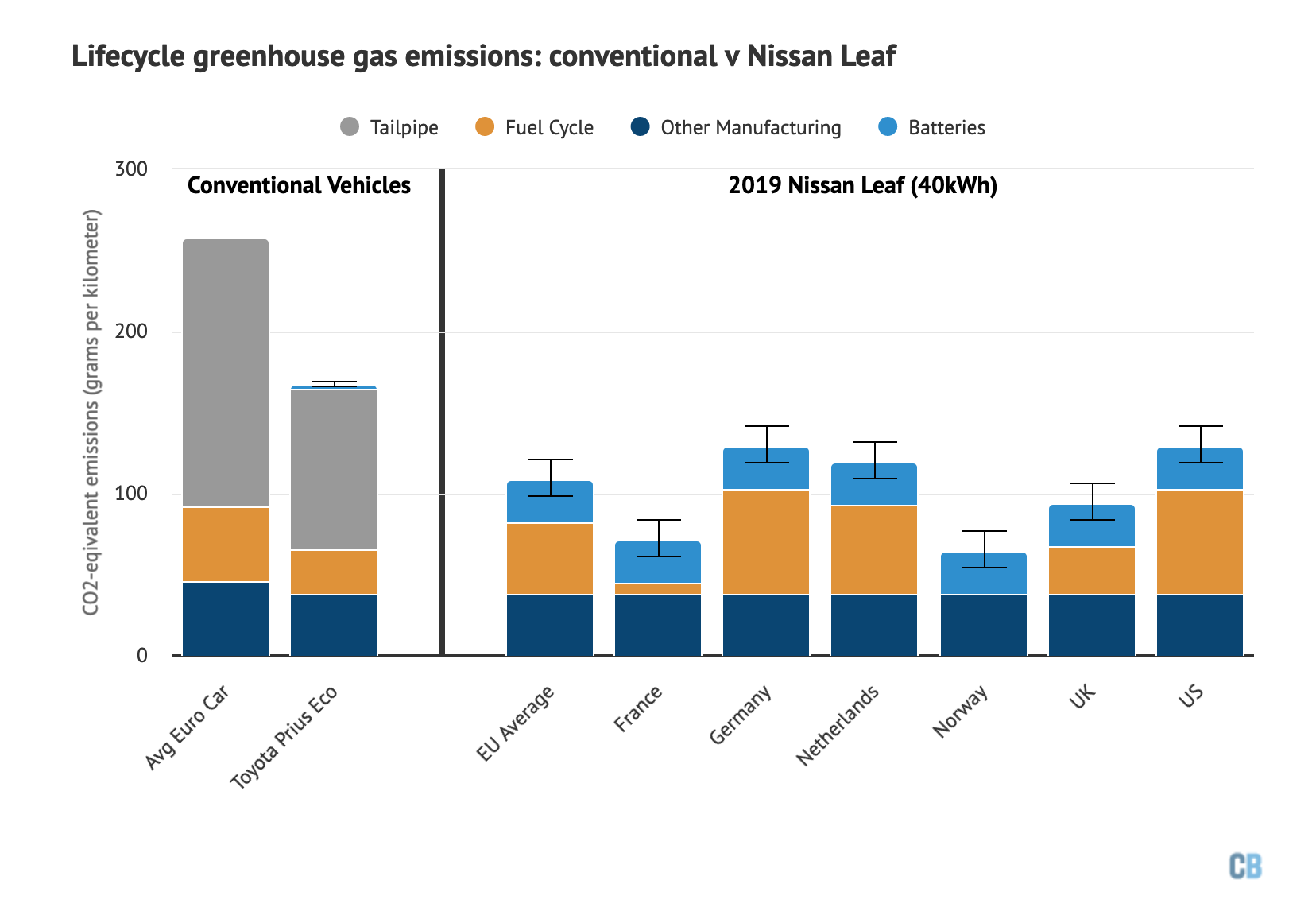
The variation there is mainly the "fuel cycle" or in laymen's terms, charging the battery. The variation there comes down to how the grid is powered in that country. France uses a lot of nuclear power, and like it or not, that keeps the carbon emissions incredibly low. Norway has a lot of renewable hydro-electricity, which helps them generally keep the carbon emissions of their grid down too.
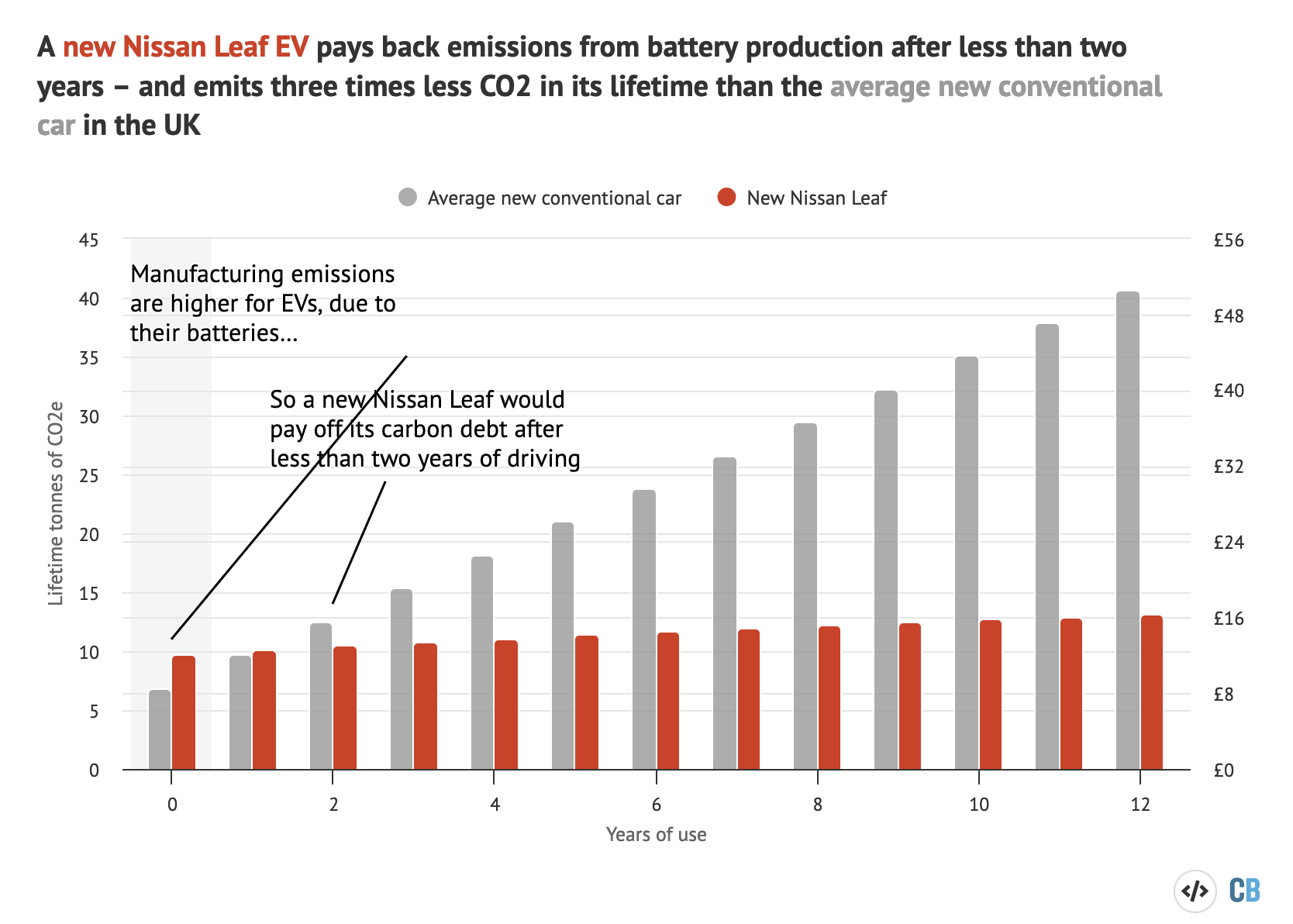
Using low-carbon power sources to charge a vehicle is definitely good, but that has lead to some people thinking the grid must be entirely renewable to avoid making an electric car worse. We've probably all seen cartoons like this knocking around, mocking those who drive EVs for thinking they're helping, whilst only hiding the problem?
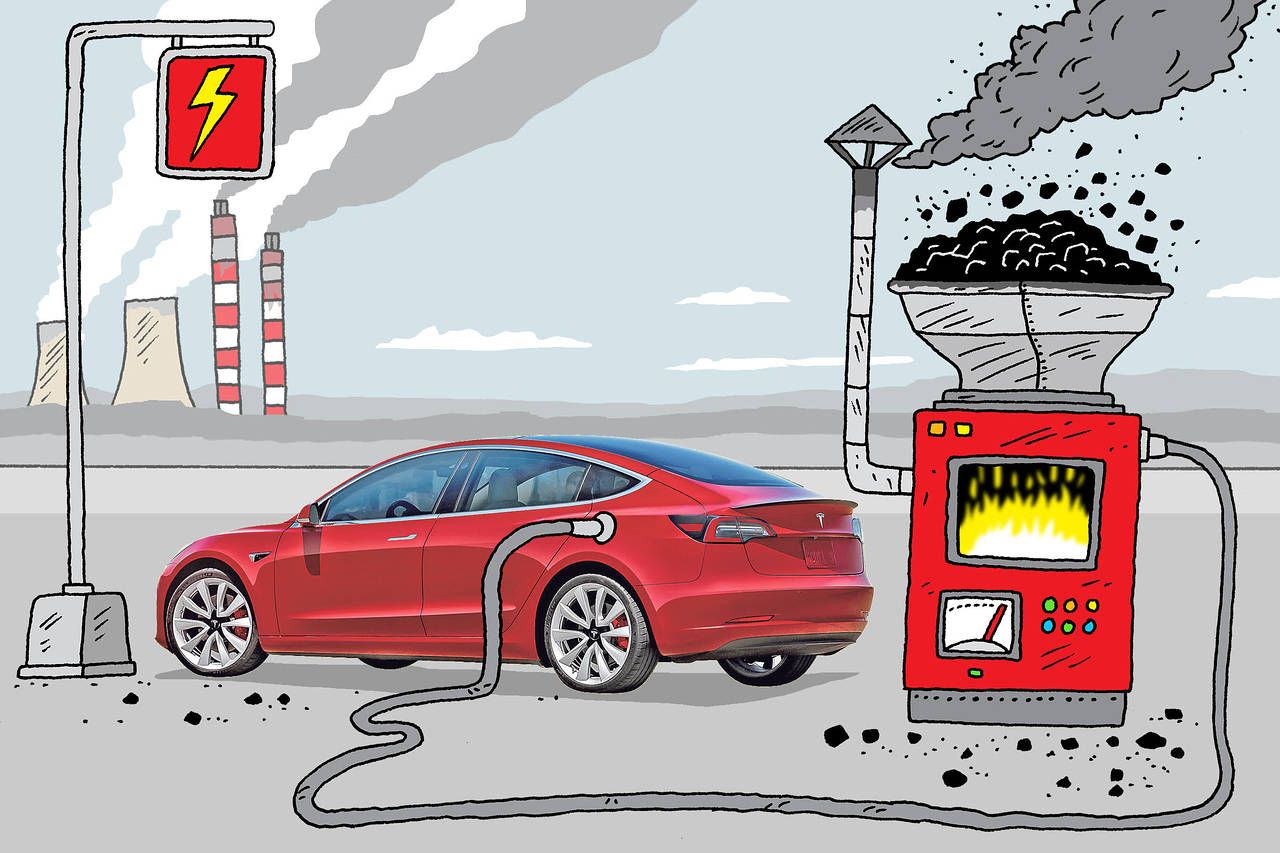
This sort of spiel is a good way to get clicks and lols, but it ignores the sheer weight of evidence from around the world that even in countries where the grid is primarily coal or gas powered, an electric vehicle will produce fewer emissions over its lifetime than an equivalent fossil fuel car.
Take a look at this chart from the ICCT, which shows the lifecycle carbon analysis for the "internal combustion engine" (ICE) cars across a few countries with a reputation for being coal dependent.
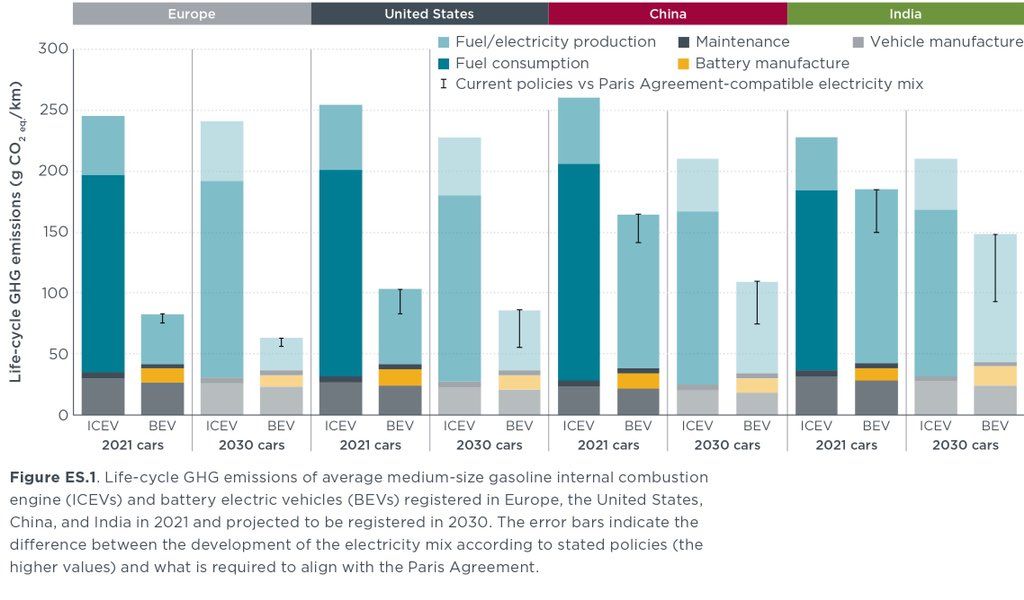
Thanks to not having to ship fossil fuels around all over the place, from mine to refinery to consumption and all the various intermediary steps between those places, the lifecycle emissions of an electric car (manufacturing, shipping, running, and scrapping) are almost always going to be lower than fossil fuel cars.
In the worst case scenario, an electric car with a battery produced in China and driven in Poland still emits 37% less CO2 than petrol. And in the best case scenario, an electric car with a battery produced in Sweden and driven in Sweden can emit 83% less than petrol. – Source: https://www.transportenvironment.org/discover/how-clean-are-electric-cars/
People who say otherwise are just regurgitating badly written un-researched crap from tabloid newspapers, and can be safely ignored.
Running Efficiency
Stepping aside form the full lifecycle analysis, why is it that electric vehicles are so much more efficient than fossil fuel vehicles?
It all comes down to the way combustion engines work: either combusting petrol, or the high compression of diesel. Thermodynamics is a whole thing, but loses come from all the heat, noise, and friction of so many moving parts involved in making the engine go, and stopping it from overheating: the radiator, fan-belts, etc. All of that means only 12-30% of energy that goes into a fossil fuel car is used to move a car down the road.
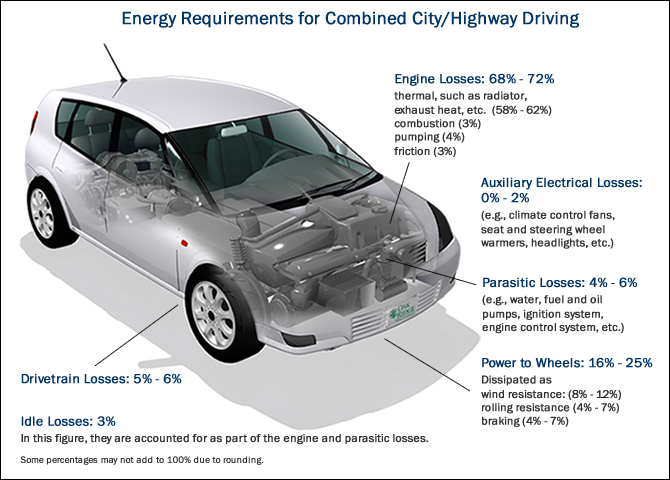
That's an old looking graphic, but the numbers are from 2018, not 2000, which is pretty recent and things haven't changed much. People think of petrol/diesel engines getting more efficient over time, but really the opposite is happening.
Whilst on a technical level the engines themselves are getting more efficient, cars in general are getting bigger, and they're also getting heavier. Any marginal gains being made in fossil fuel engine efficiency are being lost as those slightly more efficient engines are being used to power bigger and heavier cars.
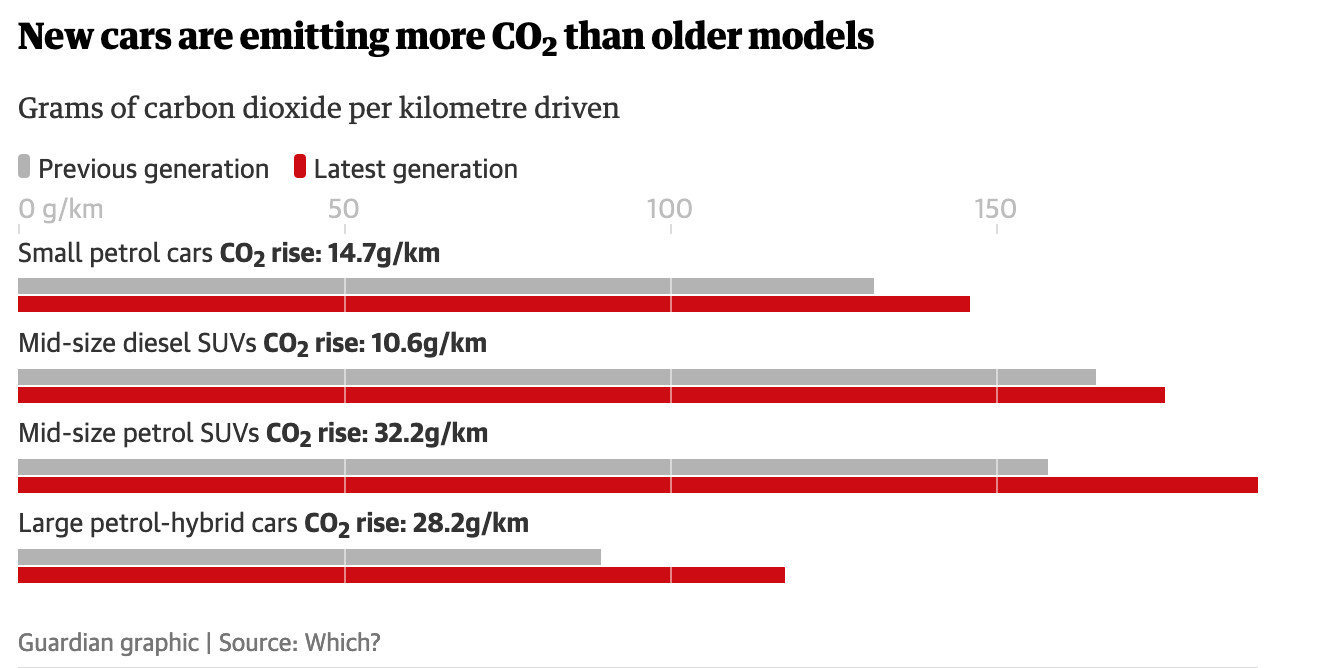
The Rise of SUVs
Not only are the weights of any given model on the rise as manufacturers jam in more and more premium/comfort features, but the types of car we buy is changing.
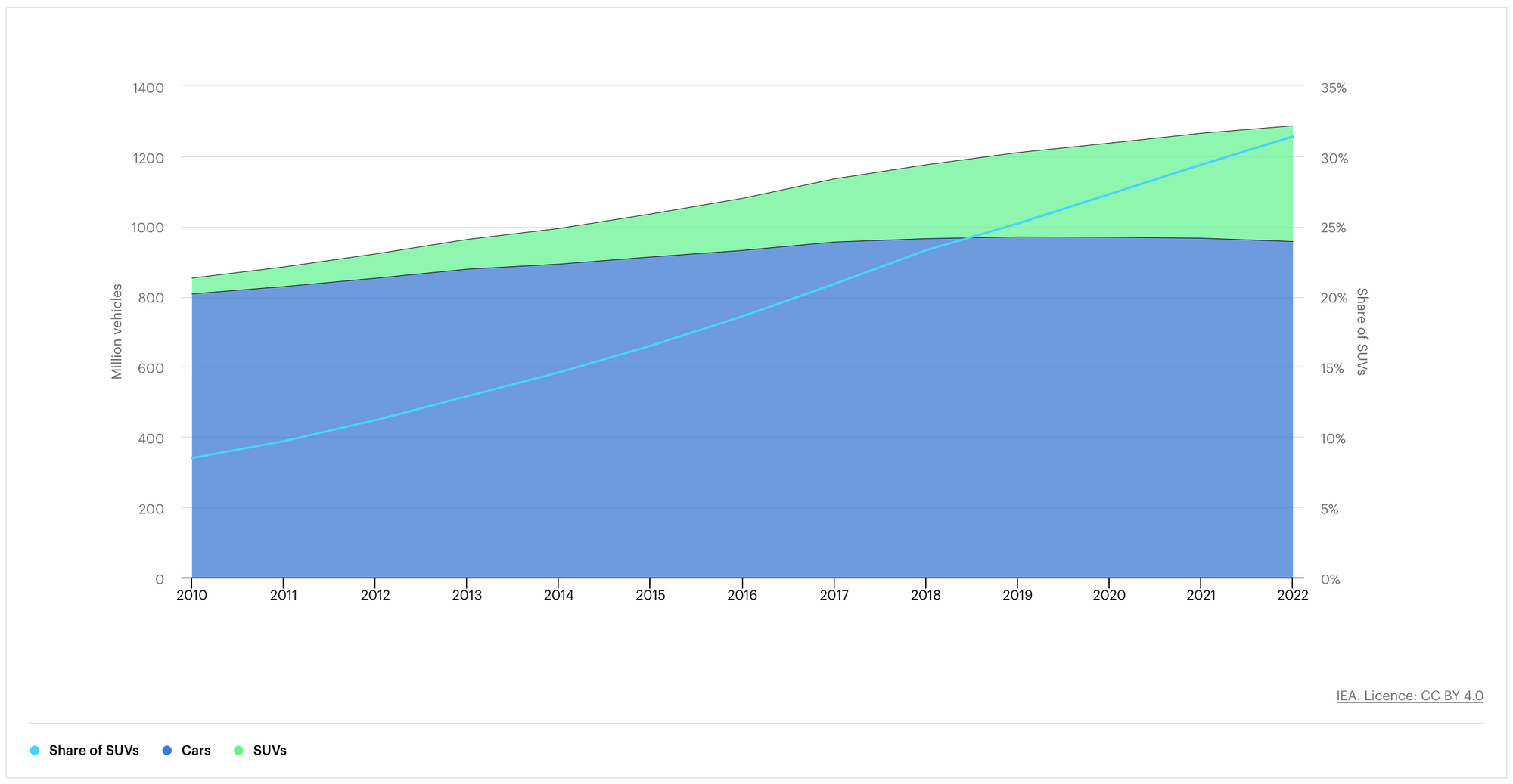
Half of new car sales in the UK are Sports Utility Vehicles, and their share of emissions are growing all over the world to a point where if SUVs were a country they'd be the six largest emitter.

These large cars are not being used to drive off-road, through tough terrain working on the farm, getting people back to their cabin in the woods in a snowstorm after a long day out hunting elk, but are increasingly being used in cities and suburban environments, for short trips like the school run, and to grab a carton of milk.
People cite many reasons for this, such as being easier to get in and out of with mobility issues, or they "feel safer" (even though SUVs are more likely to roll). The outcome of this vehicular arms race is that any gains from the electric vehicle transition have been completely lost to the proliferation of SUVs.

One in six of those SUVs are powered by electricity, which sounds good right? Sadly not. When you start going big on electric vehicles, they start to become more comparable to the least inefficient fossil fuel cars.
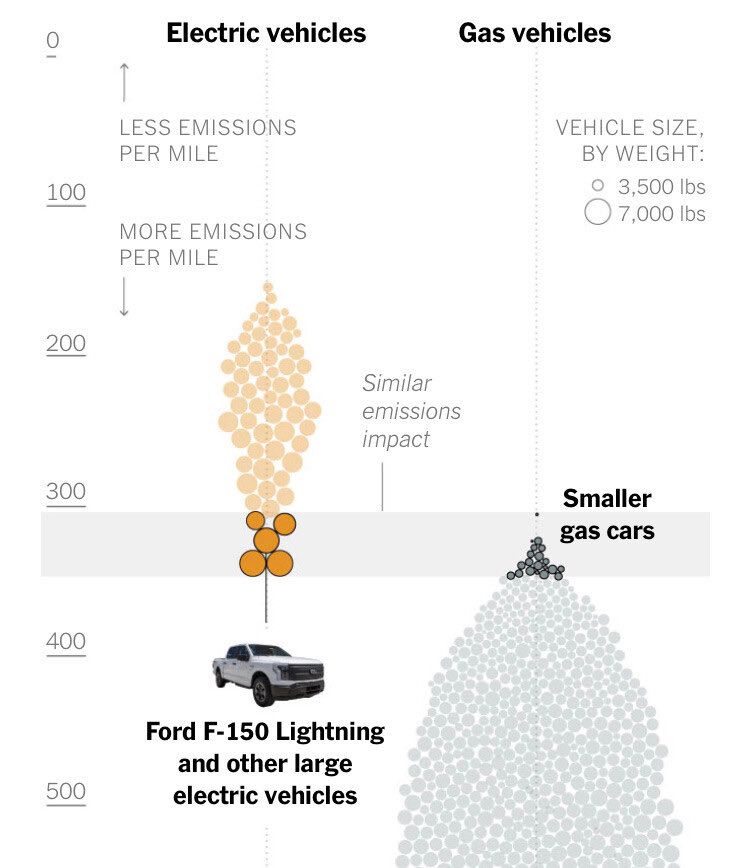
This comparison is often used to point out that people should buy more small and efficient petrol vehicles, and there's two problems with that: 1) clearly that isn't happening, 2) that's the wrong conclusion to take.
If you're buying an SUV, it doesn't matter what its powered by, it is the most wasteful way to get around. People who work on a farm aren't buying these "wankpanzers" either, so their use case is pretty much non-existent. SUV marketing should be banned, they should be taxed to oblivion, and any tax loopholes which make them a "business vehicle" must be closed immediately.
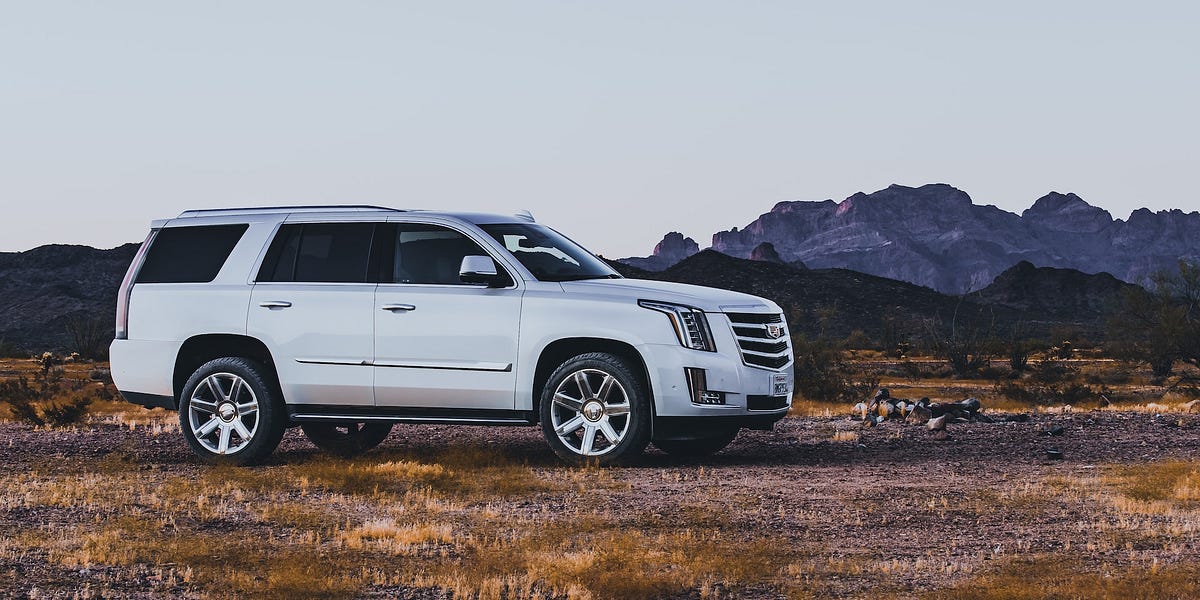
Pollution is not just Tailpipe Emissions
If the only pollution coming from a car was out of the tailpipe, then electric vehicles would be smashing it. Unfortunately, tailpipe emissions are only part of the story. Car tyres, and disk breaks, both produce a whole load of particulate matter which is incredibly bad for human health.
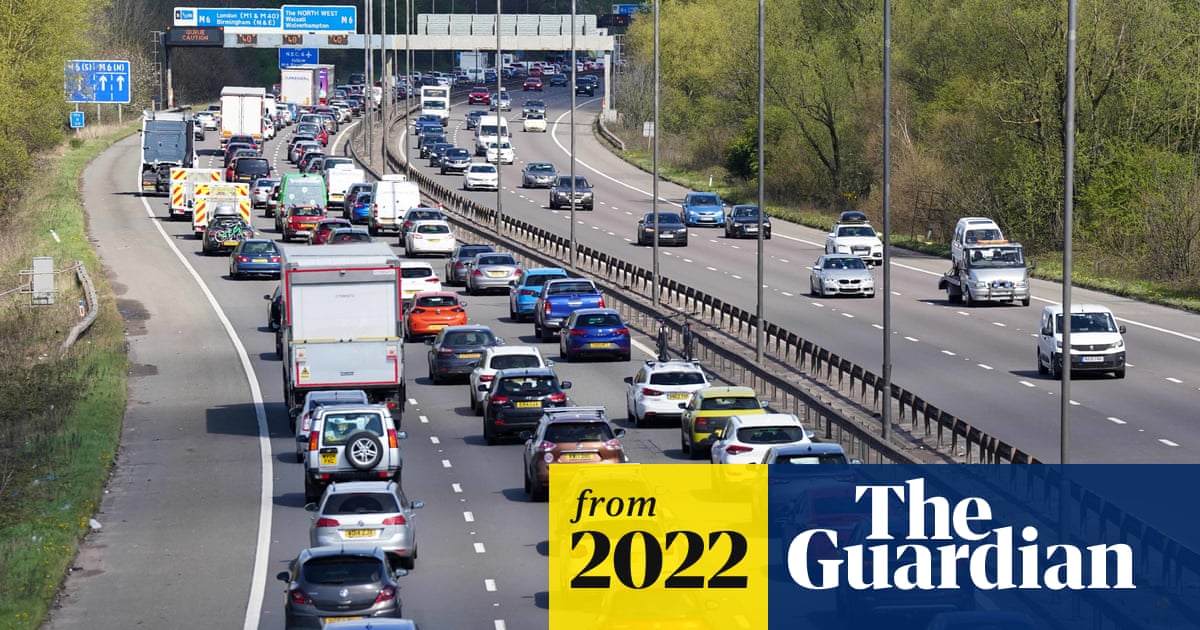
It's the "other type" of air pollution. Greenhouse gases cause the planet to heat up, which can kill people and knacker the environment, and that's one type of air pollution. The other type is particulate matter, which may not travel as far, but will get lodged in your lungs and give people all sorts of respiratory problems, even dementia.
The average weight of all cars has been increasing. But there has been particular debate over whether battery electric vehicles (BEVs), which are heavier than conventional cars and can have greater wheel torque, may lead to more tyre particles being produced. Molden said it would depend on driving style, with gentle EV drivers producing fewer particles than fossil-fuelled cars driven badly, though on average he expected slightly higher tyre particles from BEVs.
All car tyres last longer if you don't drive like a muppet, so thats an easy fix for you: if you drive you'll drive softly. Convincing others to drive less aggressively is far more complex, so there will be that particulate matter coming from heavy vehicles, both electric vehicles, and increasingly pointless SUVs.
Disk breaks are a similar story, where heavier weight means more particulate matter coming off of electric vehicles. EV boosters will point out that EVs usually come with "regenerative breaking".
Regenerative brakes work by reversing electric motors that propel a car. It works like a generator and feeds energy back into the hybrid or electric system to help replenish a little bit of range. These small boosts in battery range can accumulate and improve efficiency over time when used regularly. – Source: https://www.kbb.com/car-advice/regenerative-brakes-how-they-work/
This is true, but the claim that "electric cars use regenerative braking" needs a massive asterisk next to it. It is technically true that all electric cars on the market today (at least in the U.S. and AFAIK Europe) have regenerative braking, there's a human element to it which cannot be ignored.
- Not all EVs have regen breaking turned on by default.
- If it is on by default, it is usually on low.
- "I turn it off every time because don't like the way it feels." -- My own mother.
- Disks still get used if you hit the breaks hard enough.
Over time I believe 1, 2, and 3 will be improved, but in the mean time there are people driving EVs with no idea they can use regen breaking, spewing out all sorts of particulate matter. It's like having an eco mode on a washing machine with a weird icon you've never tried pressing, or simply didn't like the results of. Existence of thing doesn't mean its being used.
I am concerned about tyre wear and disk wear, which is why I try to keep my van on max regen settings, drive cautiously, start slow, and stay slow on the motorways. That's not much of a problem for me, its a camper van, I'm not going over 50 or all my shit flies off the shelves. Frustratingly even trying to do the right thing there are technical limitations. When my van (Nissan E-NV200 2018) is 100% charged I literally cannot use regen braking. I'll put it in mode but it simply doesn't, meaning I am forced to use the disk brakes until I have made some room in the battery.
All of this said, and without wanting to play whataboutism, I do feel like there is a lack of context in the discussion about "heavier cars produce more particulate matter so lets complain about EVs". The people saying that never complain about fossil fuel powered SUVs, which also weigh more than normal cars, without adding any of the benefits of reduced tailpipe emissions, and they don't have regen breaking so they're burning fuel going down hill instead of charging the battery. It seems disingenuous for so many to regular bang on about EV weight whilst failing to mention SUV weight.
If we regulate SUVs to the brink of existence then we'll save ourselves a lot of microplastic in the environment and massively reduce tailpipe emissions and overall lifecycle carbon of vehicle traffic. Now that we're all aware of the particulate pollution problem involved with "rubber on road" we can also start to push for moving trucks to rail freight. We can push for more trams instead of buses. We can demand the end of stupid "busways" and get the trains we deserve. There are big gains to be made in reducing tyre/disk particulate matter, and I don't think reasonable sized EVs are it.
What about Batteries?
We've talked about electric vehicle batteries here a little, but they are a massively contentious topic for many reasons. You'll hear concerns like this in the newspapers, op-eds, folks on the street...
- Mining for battery materials is bad because of the human rights violations.
- We'll run out of rare earth metals if we use them for electric cars.
- Batteries die after a couple of years and you have to buy an expensive new one.
- Batteries cannot be recycled.
These common arguments are at best part true, but mostly involve twisting the truth or outright incorrect.
Fact: Mining for battery materials is bad because of the human rights violations
This one is entirely true. Horror stories about cobalt minors in the Congo being worked in torturous conditions for little to no pay are reported from multiple reliable sources and first hand accounts.
/cdn.vox-cdn.com/uploads/chorus_asset/file/23235534/VRG_ILLO_5017_D_Novgordoff_Cobalt_Mining.jpg)
These conditions are cited as one of the reasons battery manufacturers (including Tesla) are moving away from using cobalt in car batteries. I presume it's also cheaper and they're not just doing it out of altruism, but regardless, one of the cobalt industries biggest customers is pulling the plug.
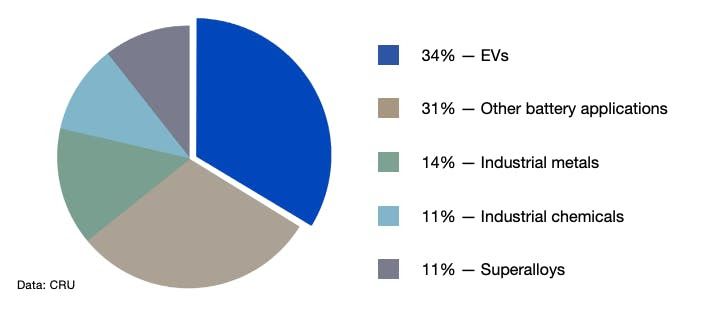
Will that end the human rights abuses at these cobalt mines? No, that's going to be an ongoing problem that needs dealing with, but there is an even larger problem that we're not talking about here. Fossil fuel extraction is inherently tied to human rights violations all over the world on an incomprehensible scale.
Fossil fuels are the main driver of the climate crisis, the impacts of which are already hindering our rights to health, food, water, housing, work and even life itself. These impacts are even more severe for people facing marginalization, discrimination, poverty or oppression. Too often they also suffer the direct human rights harms of fossil fuel extraction, production and its related infrastructure in their local communities such as contamination of local water and food supplies, air pollution, biodiversity loss, forced evictions and other human rights abuses. Human rights defenders who oppose those projects often face attacks, harassment and criminalisation. – Source: Amnesty International, "Urgent fossil fuel phase-out critical to protect rights"
The people who focus specifically on "mining is bad when it is for EVs" are either intentionally or unintentionally supporting the most popular fossil fuel lobby schtick, as they fight to continue their bloody campaign against human rights all over the globe.

Myth: We'll run out of rare earth metals if we use them for electric cars.
I hear this concern several times a week, literally from friends, Romans, and countrymen. It's everywhere.
There are many different types of EV battery, and none of them contain rare earth metals. Currently the main type of battery is Lithium-ion, and so that leads people to question if we have enough lithium, or if we'll destroy the world trying to find more.
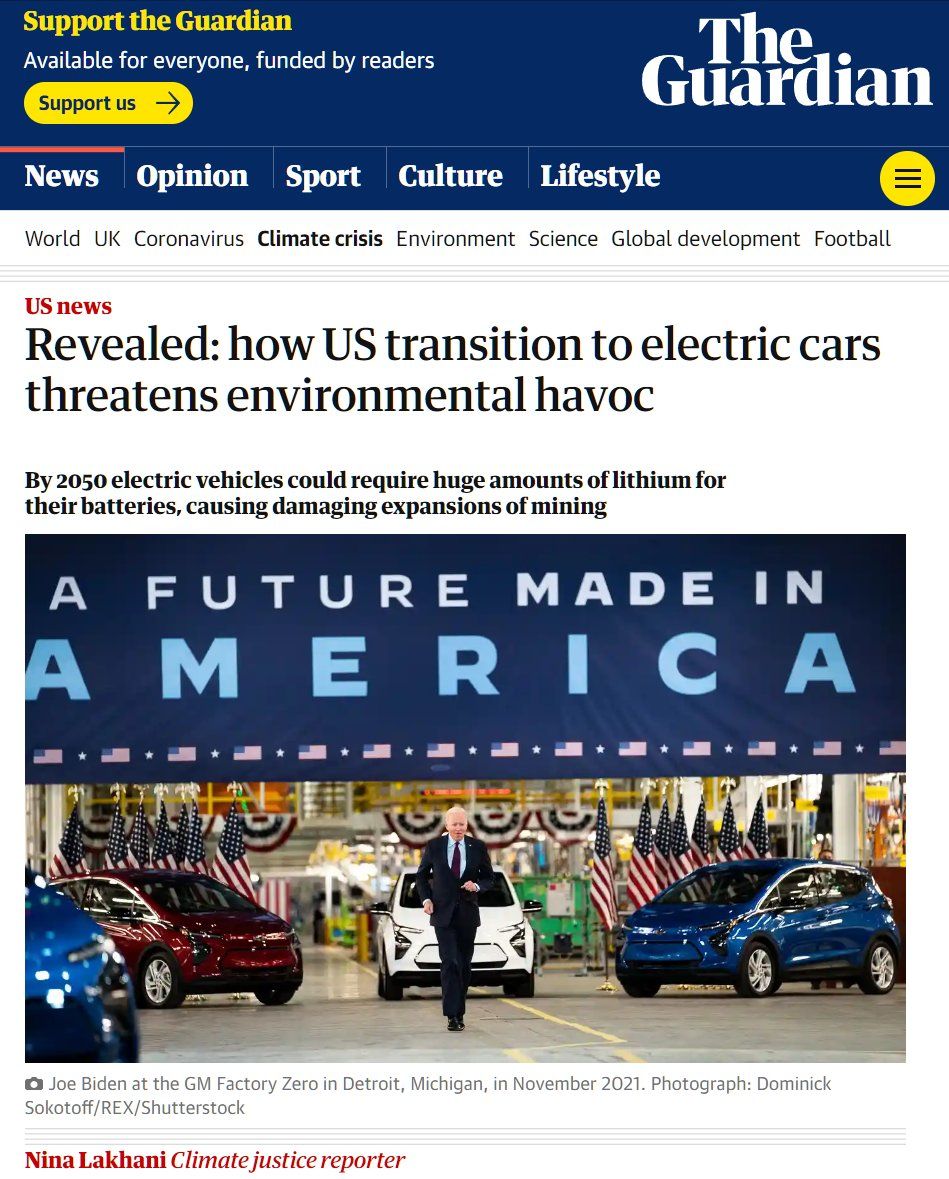
Some folks suggest we have discovered enough lithium to produce 10 billion cars, but good lord do we not want to produce 10 billion cars. We absolutely cannot have a planet where everyone is driving everywhere anyway, regardless of what is powering it. If we reduce the number of cars on the road by the expected and targeted amounts, then we have not only enough lithium to produce the required number of electric vehicles, but to use batteries for grid energy storage, and all sorts of other handy energy transition uses.
It's true that there is currently a constraint in the supply chain of lithium, with a huge amount of it currently coming from China. Australia has a bunch, and massive reserves of lithium ore are popping up all over the world now that mining companies are suddenly motivated to find more "white gold". The need for more lithium has not caught the world by surprise, and "the wokerati" are not ignorantly expecting the impossible.
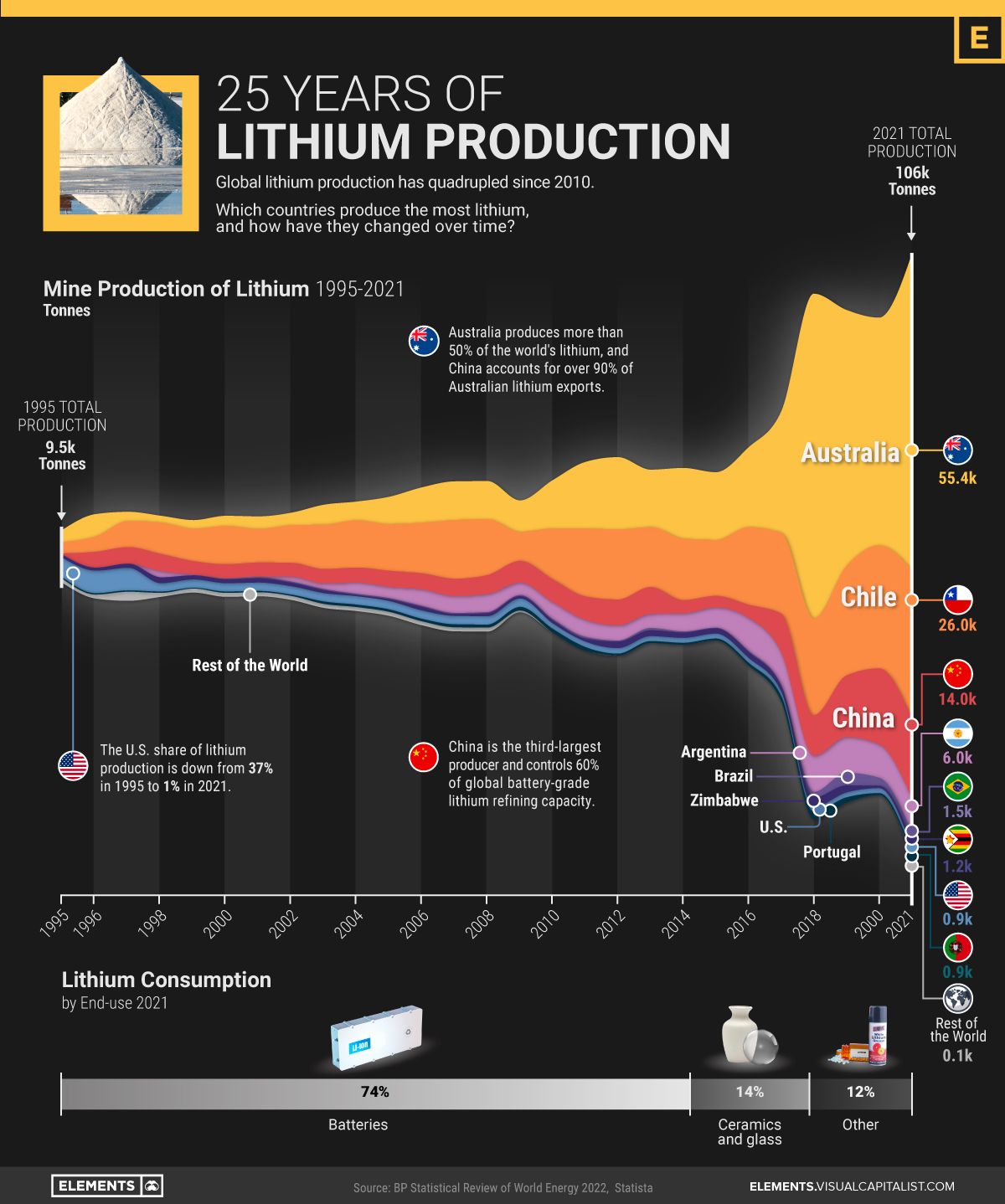
It's important not to confuse "how much is easily available right now" and "how much can be accessible within a relevant timeframe".
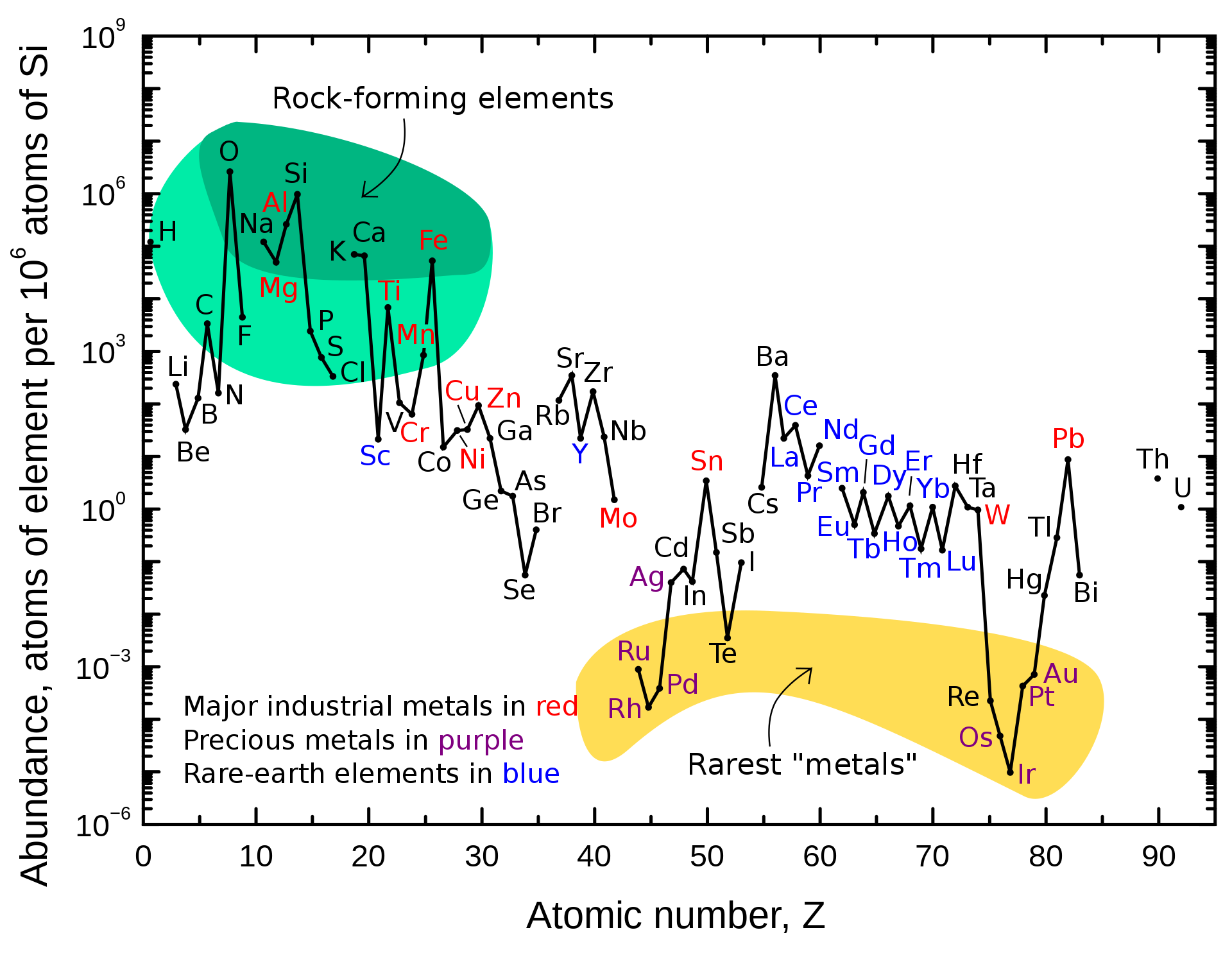
It's also important to remember that you cannot just take out a calculator, look at how much of various materials are required now, then hit the multiply button to see how much will be needed in the future. Economies of scale kick in that lead to efficiency savings getting more out of less material, and alternatives are popping up that do not require lithium at all.
In recent years, alternatives to Li-ion batteries have been emerging, notably sodium-ion (Na-ion). This battery chemistry has the dual advantage of relying on lower cost materials than Li-ion, leading to cheaper batteries, and of completely avoiding the need for critical minerals. It is currently the only viable chemistry that does not contain lithium. The Na-ion battery developed by China’s CATL is estimated to cost 30% less than an LFP battery. Conversely, Na-ion batteries do not have the same energy density as their Li-ion counterpart (respectively 75 to 160 Wh/kg compared to 120 to 260 Wh/kg). This could make Na-ion relevant for urban vehicles with lower range, or for stationary storage, but could be more challenging to deploy in locations where consumers prioritise maximum range autonomy, or where charging is less accessible. There are nearly 30 Na-ion battery manufacturing plants currently operating, planned or under construction, for a combined capacity of over 100 GWh, almost all in China. For comparison, the current manufacturing capacity of Li-ion batteries is around 1 500 GWh. – Source: https://www.iea.org/reports/global-ev-outlook-2023/trends-in-batteries
So there is plenty of Lithium knocking around, some EVs might not need lithium at all, and for the lithium we will need there are better ways of getting it. Researchers are working on reducing the dependence on mining by pulling it out of waste water. The most interesting lithium story I've heard involves separating it from waste brine created as a waste product during desalination (turning sea water into drinking water). Dumping that brine back into the sea has been common practice for a long time, and due to all the concentrated heavy metals it is hugely damaging to sea life. Well, instead of dumping that brine back into the sea, we can recover and seperate materials from it, producing more lithium with less mining!

The main take-away is that scientists are really damn clever, and even on the rare occasion that a right-wing tabloid hits on a real actual factual problem thats wasn't solved a decade ago, it's well on its way to being solved.
If you were thinking about buying a petrol car because lithium is bad, then absolutely reconsider.
Myth: EV Batteries Don't Last Very Long
All batteries in electric cars sold in the U.S. are covered under warranty for at least 8 years or 100,000 miles.
Kia has a battery warranty that covers the battery packs for 10 years or 100,000 miles. Hyundai goes even further bumping it up to lifetime coverage. Tesla's expected battery lifespan is between 300,000 to 500,000 miles.
For comparison 100,000 miles is when most fossil fuel cars start coming to end of life, and either need expensive maintenance work done to keep them going, or end up in the scrap yard. At 100,000 miles, the EV may or may not need a new battery, and may or may not need some new disk brakes, but will generally keep on trucking, making the "EVs don't last very long" suggestion feel a bit silly.
Myth: EV Batteries Cannot Be Recycled
Lithium-ion batteries can not only be recycled, but they are commonly reused.
When the battery packs in a lithium-ion-powered vehicle are deemed too worn out for driving, they still have up to 80% of their charge left. So before they ever get to a recycling center, these batteries are used to prop up the grid, especially alongside energy sources that may not be quite as steady, like wind or solar power. – Source: How Stuff Works
When they do need to be recycled they are sent off to a recycling plant, where they are shredded, and made into brand new batteries of the same or better quality.
Between 2020 and 2023 the UK was struggling to recycle lithium ion batteries thanks to all the recycling plants being in the European Union, but one eventually got built in Wolverhampton meaning everyone at the Daily Mail can calm down.
So EV batteries are ok?
On the grand scheme of things, yes? Again we don't want to be making too many of these, but the full LCA of a new EV is better than that of a new fossil fuel car, including battery manufacturing. Nothing in the process of making or recycling the batteries is going to make it a bigger problem than all the constant mining for fossil fuels. Fewer cars would be better, but mining once for batteries then recycling them into new batteries is always going to beat mining forever in increasingly complicated and ecologically important places as we get more and more desperate for more oil, like in the deep sea or the Arctic Circle.

What about Cost?
Electric cars come with a higher up-front price tag than their fossil fuel counterparts, in part due to the cost of the battery, but they pay themselves off over time due to cheaper fuel and less maintenance.
Even during this energy crisis, filling up an electric vehicle at anything less than £1/kWh, is still cheaper than fueling a car of the same size.
An anecdote: my dad was absolutely adamant it cost more to run the EV, even using the home charger. We sat down and worked out the maths.
- The EV does 5 miles per kilowatt hour (kWh).
- Price per kWh is 40p at home, 65p at most public chargers.
- Home Price: £0.40 ÷ 5 = £0.08 per mile.
- Public Price: £0.65 ÷ 5 = £0.13 per mile.
- Britains most expensive charger: £0.97 ÷ 5 = £0.19 per mile.
According to his calculations which I forgot, his petrol car was on £0.21 per mile. So, comparing two very similar small family cars, in an energy crisis with a country that gets far too much electricity from gas and coal, using the most expensive charger possible, it is still cheaper to run an EV. If you do most of your charging at home then its less than half the price of a fossil fuel car. If you get a special EV tariff with overnight charging like Octopus Energy then it's even cheaper again, as they are currently offering 7.5p/kWh. That would run my dads car at £0.015/mile (yes, 1.5p) compared to £0.21/mile for a fossil fuel car.
Beyond refueling costs it's also far cheaper to maintain an electric car. According to some estimates, will cost about one-third the current cost of maintaining a gasoline-powered car.
So its cheaper to run, cheaper to maintain, but more expensive to buy, so some people still consider them unaffordable due to the up front price tag. That's a confusing one for me, because 97% of people buy their cars on finance, and the savings on cheaper running costs put down your monthly expenses so you can afford a slightly larger monthly repayment.
Some people want more subsidies for EVs, but using taxpayer money to incentivize more people to buy more cars is the opposite of a climate friendly policy. Remember, we dont "More EVs on the Road", we want "A larger share of car miles driven to be electric, and fewer overall car miles". Really we'd to incentivize people to stop driving petrol cars, which is why schemes like France's "Cash for Clunkers" program is so good.

This allows people to trade in their old polluting cars, and receive a rebate towards an electric bicycle, or an acoustic bicycle, which is considerably cheaper to run than an electric car, makes you healthier, reduces public healthcare burdens, etc.
So, if you're absolutely needing to buy a car, get a used EV to avoid the manufacturing emissions, and if it absolutely has to be a new car don't let the slightly higher price of an EV put you off.
What about plugin-hybrids?
Plugin-hybrids are garbage gimmicks which lead to more emissions due to people not charging them often enough.
Do not think you're making a step in the right direction and waste money and emissions on this nonsense.
What about hydrogen-based fuels?
This is a huge topic but I'll keep it brief. Basically the way we get most hydrogen fuels are currently is from fossil fuels, and it's a lossy conversion to get there.
More and more "green hydrogen" is being produced around the world, but procuring this much renewable energy is not quick or without downsides, and the use of what green hydrogen we are producing should be focused sectors like manufacturing and shipping, as they are harder to decarbonize.
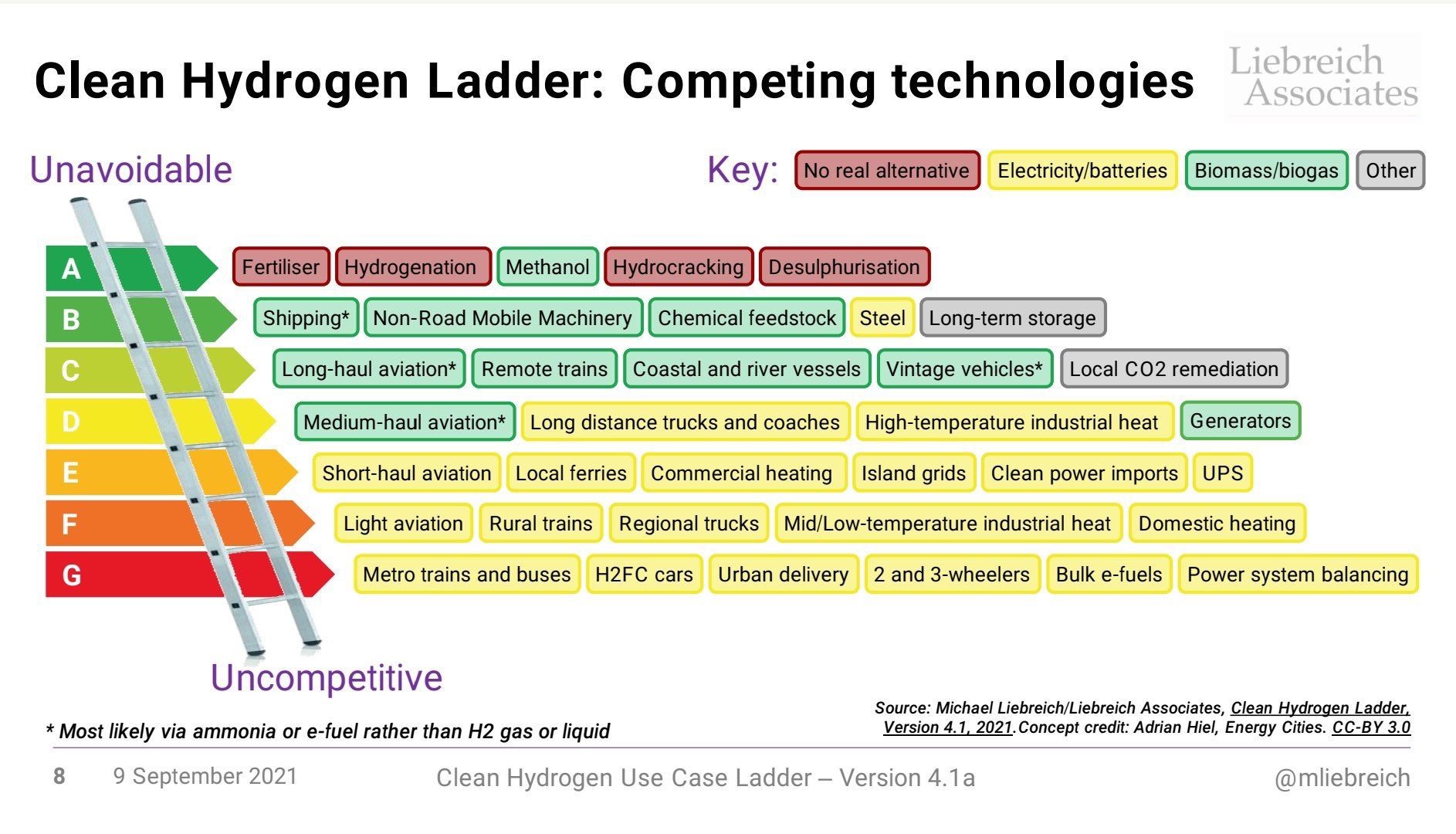
A hydrogen "fuel cell" might get you going further than an EV can before it needs to charge again, but getting that tank full involved throwing away a huge amount of energy, and that renewable energy could have been powering a factory, a hospital, a school, or a fleet of buses.
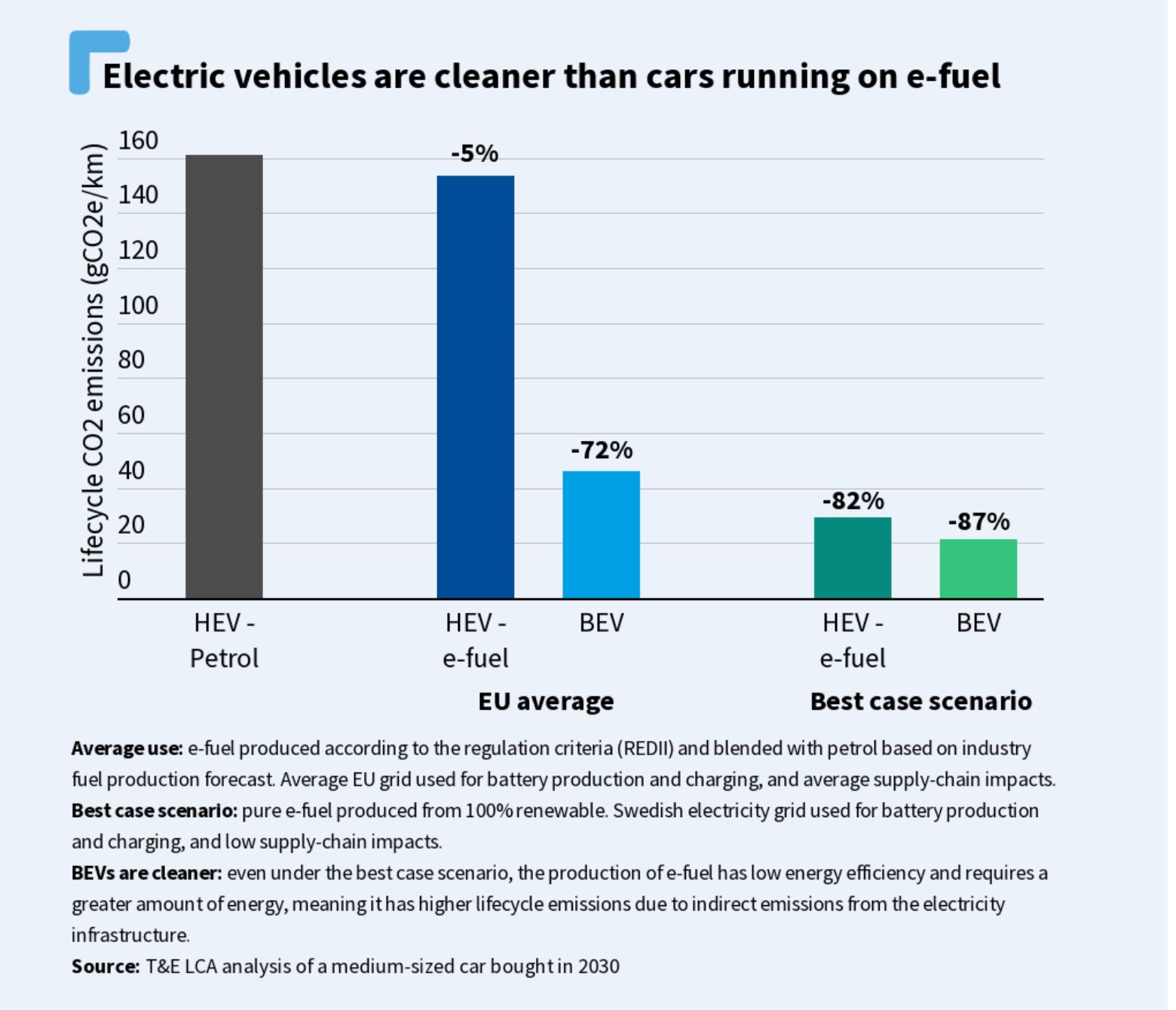
If this topic is interesting to you check out this article that explains the lossy conversions, but to save you a click: no, hydrogen cars will not be taking over. Hydrogen powered trucks are a whole other story, and the IEA and other similar groups see a big role for fuel cell" them, but not for cars and vans.
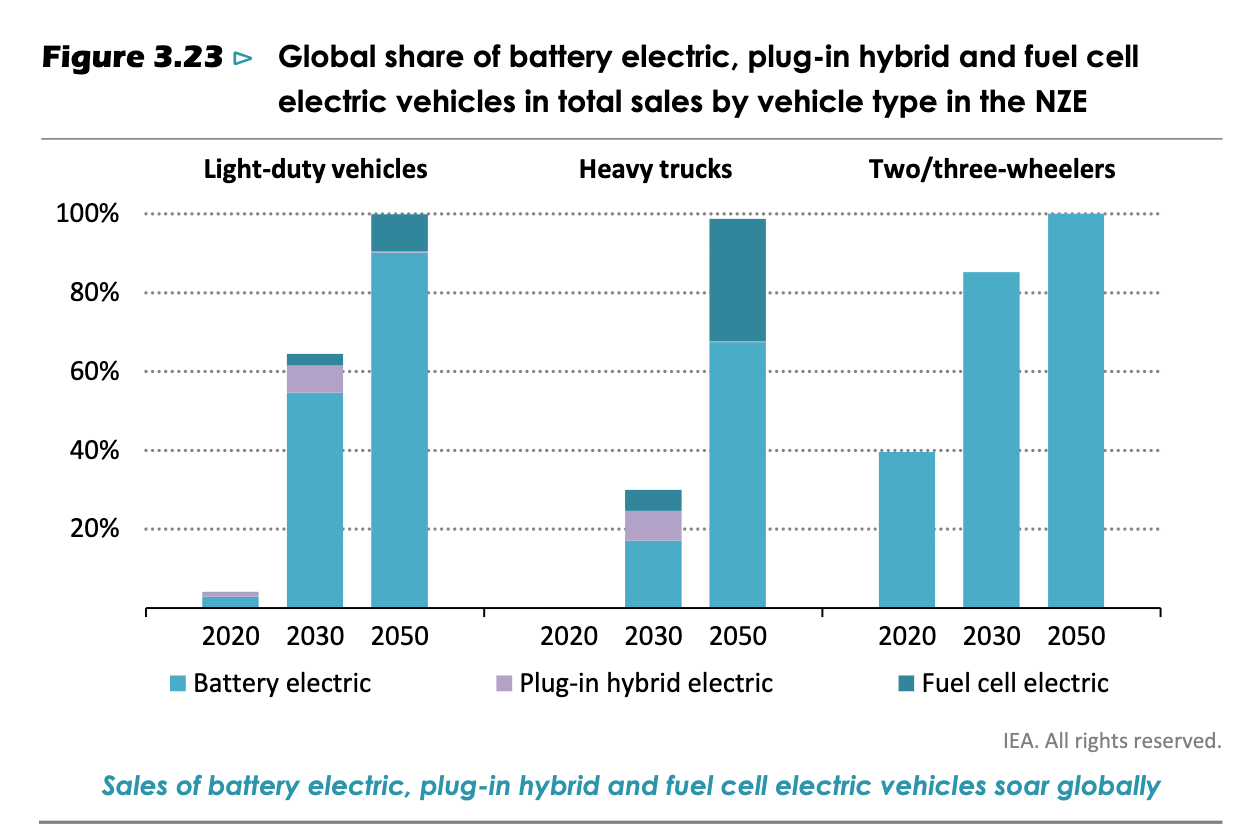
What about EV conversions?
If you've got a bit of money and you love your car, there are infinite examples of people converting their cars from fossil fuels to battery electric. For £15,000 you could turn pretty much any fancy old car in an EV, which is certainly cheaper than buying a fancy EV. This has historically been for rich people to convert their Triumph for bragging rights at the gold club (an extremely niche group of people!) but this is increasingly getting cheaper and cheaper as people work on modular kits.
I would love to see government subsidies in more countries offering to cover most of the cost of converting peoples cars, starting with those at the lowest income levels, because it has massive health benefits for everyone.
Not only does conversion reduce the manufacturing emissions of creating electric vehicles by reusing most of an existing vehicle, but it is literally taking fossil fuel vehicles off the street without all the landfill waste from the plastic shite on the dasbhoards and under the hood.
Conclusions
Yes this is the longest post I've ever written, but lets try and put a bow on a few simple points.
"Are EVs better than fossil fuel vehicles?"
Yes, pretty much always yes when comparing EV apples to fossil fuel apples.
"Should I go out and buy an EV?"
Maybe, but only once you've exhausted all of these options:
- Walking, Cycling, or Wheeling.
- Mobility scooter or Electric bicycle.
- Bus or Train.
- If you moved somewhere knowing you'd be reliant on the car perhaps re-evaluate that choice and move somewhere you're not going to be reliant on a car.
- Car-club or Taxi for occasional trips.
If none of that is possible, then an EV might be for you, and you should aim to get something second hand before going all in on the shiny new model which has larger manufacturing emissions than the thing that already exists.
Time for another statement thats easy to make.
If you absolutely need to buy and own a private vehicle, and you want to tread as lightly on the environment as possible, then you should buy the smallest electric vehicle possible for the task at hand.
Even though I live in an electric van, its tiny. It's a Nissan Leaf with a panel van arse. I could have gone for something bigger, but meh, I can stand up outside. That's what summer and tarps are for!
New fossil fuel cars should be banned as soon as possible.
Some countries are talking about 2030-2035, but it cannot come soon enough. Every new fossil fuel vehicle is just more emissions and more business for fossil fuel companies, who we should be doing our utmost to boycott.
Should you go and trade your old hatchback in for an EV right away? That's probably a bad idea.
Most people would say you should run your car into the ground before upgrading, but that's a very "every needs a car all the time" mindset. It also ignores the fact that somebody else could be driving your cheap efficient little old car into the ground whilst you live car-free, or you go car-lite with one shared family car instead of the two or three currently sat outside the average family home. If your cheap efficient car was not for sale, that person might have felt forced to buy something new, and we need to be stymieing new car sales the best we can.
Others will say "The most sustainable car is the one that never leaves the garage" and that's a great way to get people exploring car-lite and car-free lifestyles. I strongly recommend people try this, and it might just mean that you don't bother using your car again other than on extremely rare occasions.
That rarely used car doesn't need to sit around gathering dust. It could be helping to avoid other people feel the need to buy a car, but offering it up on distributed car share platforms!
You can use these platforms to recoup some costs from petrol vehicle you're not using all that much, and all the time keep exploring that car-lite lifestlye, and enable other people near you to also explore a car-lite lifestyle because they've got a sweet rental nearby they can occasionally use to go pick up nan from the train station.
It's all super complicated to think about what's best, but there are some simple goals here:
- If you have several cars, you can get rid of one of them. you can make it work. I know you think you can't, but you can.
- If you have one car, try and replace as many trips with a bike, walk, bus, train, or an occasional taxi and rental car.
- If you find yourself perfectly happy without a car in your life 24/7, get rid of that too, and let somebody else explore their car-lite journey.
Do not rush to buy a new EV if you are thinking about driving less. Creating the manufacturing emissions of an EV that just sits on your drive is not helping anyone. Drive whatever you have less, then try driving nothing.
Try and keep these points in mind with your decision making process.
- The manufacturing emissions of the U.K. creating 40,000,000, to replace 40,000,000 fossil fuel cars would produce 4,000,000,000 MtCO2e. That could build HS2 (an electric railway) at least 500 times, and people are protesting building one of those.
- Reducing "car miles driven" is more important than going completely car free immediately, and eventually you might find you don't need it anyway.
- Some people are always going to use a car, but that doesn't mean everyone needs to own their own vehicle.
The War on Cars
There are too many cars in the world already. Unless you scrap your car, then somebody else is going to drive it.
When vehicles no longer meet emissions standards in more economically developed countries, they just get shipped off to less economically developed countries to live out long polluting lives there, which is bad for their health locally, and the climate crisis does not care which country the emissions are coming form.
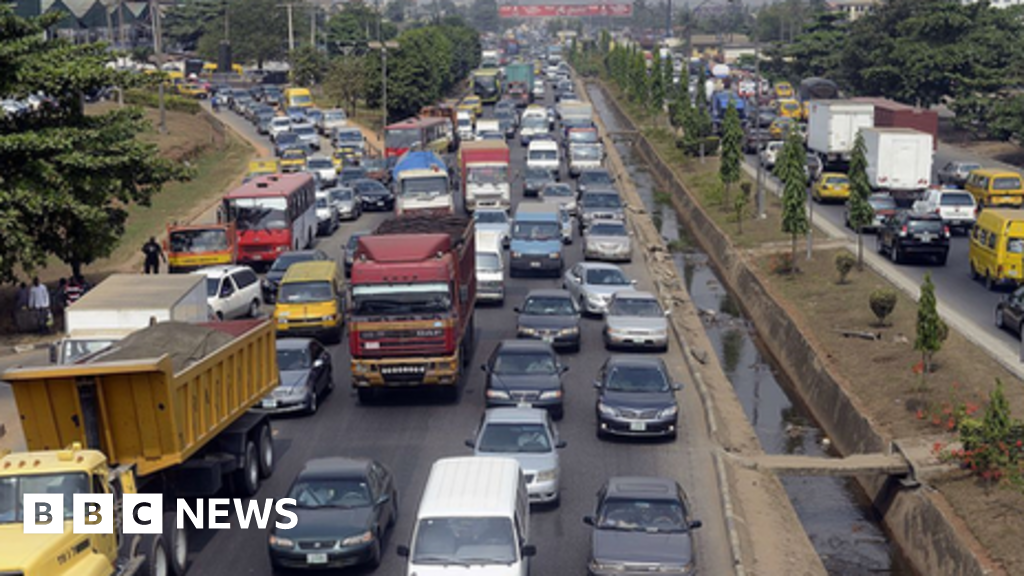
The main goal we need to have is to reduce how many polluting cars are being built. As I said that means not buying any new fossil fuel cars, but it also means limiting how many new electric vehicles we're buying.
In the UK alone the number of licensed vehicles has doubled from 20 million to 40 million 1980, and we do not want it to double again by pushing everyone to replace their cars.

More cars means congestion, and means public space all just becomes car parks. This forces everyone to demand more roads, and through the process of induced demand that means more roads being plowed through the countryside, which in England alone is an extra 4,000 miles of new road every 5 years.

Instead of buying your own car, having all those manufacturing emissions and public space wasted by having it parked 96% of the time, and feeling inclined to use it all the time for short trips because "it's sat there, might as well", there are a bunch of ways to share cars with others.
Car clubs like Zipcar, Enterprise Car Club, Europcar, Hiyacar and Co-Wheels are popping up all over the UK and your country will have similar clubs. You can use those to regularly use cars in your area without all the expense and hassle of traditional "rental cars". You can grab them for a few hours or a few days.
For longer term car sharing there's Onto and Elmo, which let you borrow a car for a few months, which I did when I was injured and couldn't cycle between tree planting jobs two winters ago.
With fewer people buying new cars, policy can also focus on getting rid of the most polluting vehicles (and not just selling them off to someone down the road or in a country that cannot afford high standards). They need to be converted, or scrapped.
Now, with all of that out of the way, we can get back to talking about proper climate solutions, like massive rail expansions, to help clear out the bottlenecks and increase capacigty for all sorts of trains: moving road freight over to rail freight, obfuscating the need for planes with fast electric trains... Trains good, cars bad, but at least we now know how to make cars less bad.

If you want to learn more about sustainable transport, go and see what the IEA have to say about it. That's the International Energy Agence not the weird Liz Truss lot. "Coming up with Consistent Transportation Policy" might have to be the next article, but I'm open to suggestions in the comments!
Further Reading
- Rowan Atkinson (a.k.a Mr Bean) churned out a column full of old tropes about electric cars, and Dr Simon Evans from Carbon Brief put him straight in a brilliant fact-checking piece.
- Carmageddon by Daniel Knowles. "How cars make everything worse and what to do about it".
- Traffication by Paul Donald. "How Cars Destroy Nature and What We Can Do About It".









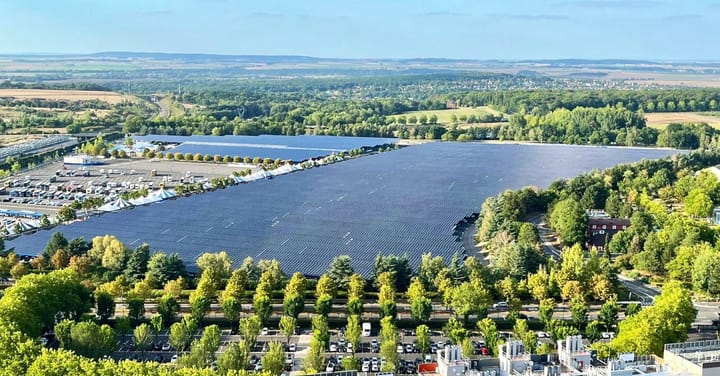


Comments ()